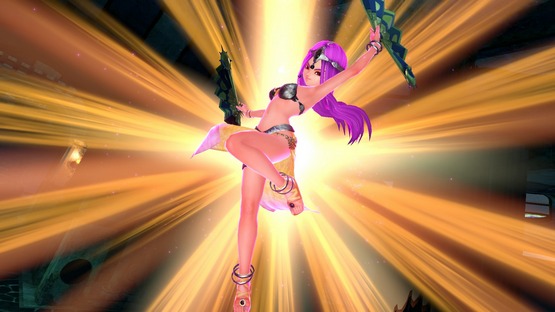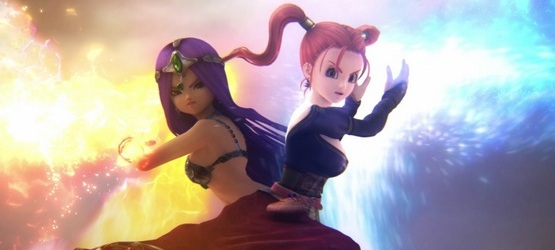
There’s been a call to leave PS3 behind in favor of an all-PS4 future — a drastic cutting down on cross-generation games leading to their quick elimination. Releases both recent and upcoming are often found at the center of these discussions: Yakuza 0, Dragon Quest Heroes, Star Ocean 5, and no doubt soon, Tales of Berseria. Here’s the thing: it’s not time yet. It’s also not holding back your Japanese PS4 games as much as you might think.
I even went through this thought process myself while playing the great Yakuza 0. “Man,” I said, “This looks amazing, but think of how much better it would be without the PS3 version holding it back!”
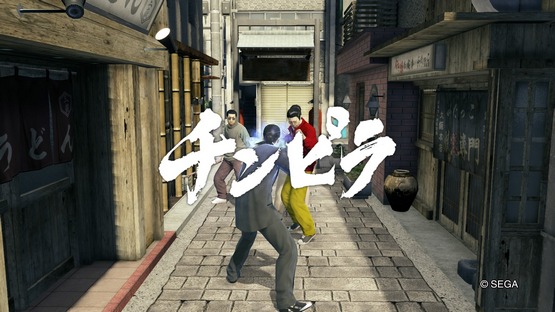
It’s not an unreasonable thought. It’s perfectly logical to assume that the existence of a last-generation game limits the potential of the newest releases. In order to make the games comparable in any way, they need to play, perform, and look close enough to each other, right? And to make a PS4 game that can be downgraded enough — or, in the reverse, make a PS3 game that can be upgraded just enough — you need to keep them close together. Sure, this isn’t an unreasonable assumption.
It is, however, wrong.
The fact of the matter is that without the PS3 versions of this cross-gen Japanese games, the differences in the PS4 version would be minimal, if they manifested at all. Most Japanese developers simply don’t have the budget to push their products too far into the sky. Apart from very few exceptions with huge-name franchises, Japanese game makers lack the funds the max out PS4 hardware.
If Dragon Quest Heroes never came to PS3, there’s not a single thing about it that would have been improved. The PS4 version already has more enemies on screen, a higher frame rate (60fps to PS3’s 30fps), shorter load times, and cleaner visuals. Alright, I’m sure maybe in one corner of a battlefield there’s a coin that would sparkle a little brighter. Whoopee. Point is, given the sales expectations, there’s not much that would’ve been done to that game, had it been a PS4 exclusive.
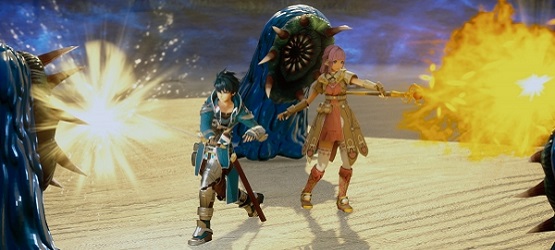
As game consoles have become more powerful, development on them has also become more expensive. All the while, the Japanese yen has gone way down in value, its citizens are dealing with a moribund economy and tax hikes looming in the future, spending is down, console and game sales are way down, and the new console install base is growing more slowly than past generations.
Put Yourself in Their Shoes
Let’s take a look at some numbers. In its combined first two weeks, Yakuza 0 sold 175,390 on PS3, while its PS4 version lagged behind with 105,761. At first, the performance of PS4’s Dragon Quest Heroes seemed great, with 327,389 sold in about a month. But its PS3 version was the real money maker, shifting 442,854 in the same time frame.
There are other examples like this all over the place.
So now, imagine that you have to develop a console game — and developing one the caliber of DQH or Yakuza Zero is a very expensive task, to be sure — and you have to do it without being able to rely on 55-65% of your sales (as 63% of Yakuza 0 sales were for PS3, and 57% of Dragon Quest Heroes sales were for PS3). I know that I don’t want a 50% pay cut. Do you?
Would you really mash the Go Button on a project that was exclusive to PS4, and all but guarantee that your sales would be cut in half, if not worse?
The Noble Fallen Heroes
Some people say that the sales of PS4 games would increase if there was no PS3 version. Without a doubt, this is true. Of course, there are people out there who would want a certain new game so badly that they’d crack, go out and buy a PS4 alongside it.
…But how many?
Will it be the 50,000 or 100,000 your company needs? Given the PS4’s poor performance in Japan (lagging far behind the PS3, and even trailing consensus commercial failures such as the GameCube), can you really depend on the Japanese market to turn around and change every pattern it has demonstrated to this point? Would you gamble your income– your family’s livelihood — for the next year on that?
Onechanbara Z2 Chaos, Disgaea 5, and Omega Quintet tried that. How’d that turn out for them? Poorly.
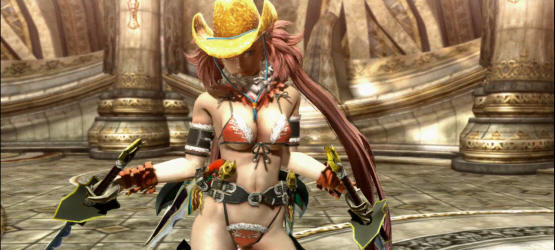
Onechanbara Z2 Chaos was under 11,000 copies during its Japanese debut week. Omega Quintet performed similarly. It’s hard for me to estimate how hard it would have been to make a version of Onechanbara that fit the PS3, but having looked at it and played it, and having seen that it was possible for Dragon Quest Heroes and Yakuza 0, it’s a reasonable notion.
True, true, Onechanbara and Omega Quintet don’t have quite the name power of some other franchises. But what about Disgaea? Disgaea 4 on PS3 sold more than 80,000 copies in its debut week. So how did the PS4-exclusive Disagea 5 sell? Upon last check, after two months on the market, it’s still struggling to reach half of that number.
And the sad part is, that game truly does take advantage of PS4 horsepower. The size of Disgaea 5‘s battlefields and number of characters displayed on screen simply wasn’t possible on a PS3 tactical RPG. The team went all out, and their reward was…dismal marketplace failure.
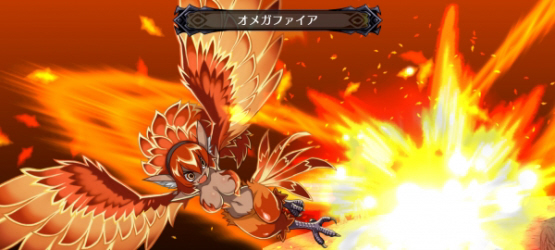
North America and Europe might make up some of the gap, as Disgaea has a nice-sized audience outside of Japan, but the thing is, now, unexpectedly, the western audience has to first make up for a Japan-side failure before the profits can start coming in. This is a situation no developer wants to be in. A developer as hilarious and fun as Nippon Ichi doesn’t deserve that fate. If they come out with a dumbed-down version of D5 for PS3 and/or Vita, I can’t fault them.
Which Old Witch?
I’m not saying that a PS4 exclusive can’t do well in Japan. Oh, it certainly can. The Witcher III proved that, as it has sold almost 100,000 copies since its late-May debut. The key difference, of course, is that European developer CD Projekt RED was only seeing the Japanese market as a bonus. Those guys knew that their real cash haul was coming from Europe and the Americas, not Japan.
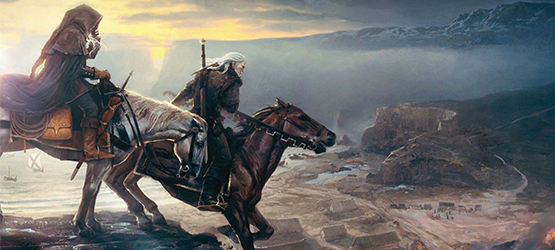
Western games have demonstrated an ability have PS4 versions outsell PS3 versions (both at home and in Japan) but even in those cases, the PS3 version represents a large chunk of the sales. Look to the case of Far Cry 4, whose PS4 version sold more than PS3, but only by a three-week margin of 52k to 32k. You’re still losing 40% if you skip a PS3 version there. If that were your own country, that’d be a much bigger deal than in a lower-priority market.
Asleep in the Fantasy
But what about Final Fantasy XV? I only put this in here because I know someone will bring it up. Quick and to the point: Square Enix is a company with the time and the money to commit to a project of that size. If you think that more games will start to look like Final Fantasy XV just because the PS3 versions die off, you’re simply wrong. Going back through previous generations, mainline Final Fantasy games have almost always been among system leaders in visuals, and Square Enix has the name and the bank account to make sure it stays that way. They are the 1%.
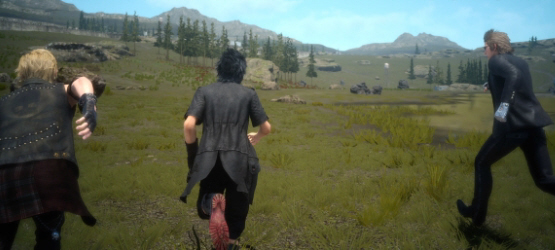
PS3 is A-OK
And taking a step back, I’m okay with PS3 versions existing anyway. Yakuza 0 and Dragon Quest Heroes look and play like legit PS4 games. If you didn’t already know there was a PS3 version, you’d probably never guess it just by playing.
In fact, Sony is confident in this, too. While Dragon Quest Heroes and Sword Art Online: Lost Song got PS3 versions in Japan and mainland Asia, the PS3 versions won’t be traveling to North America and Europe. You’re reading this website and you already know about those games’ PS3 iterations, but the common customer will not. And you know what? The common customer won’t be any the wiser, because those games perform fantastically.
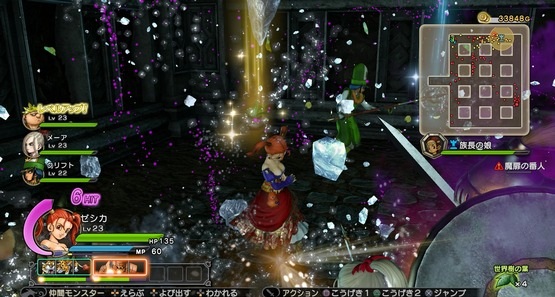
So the next time you wonder if a Japanese game is being held back, consider the above. A PS4 exclusive version would, in the great majority of cases, not look much better with the removal of a PS3 version’s existence. Overall sales would decrease, which means budget would decrease; and when budgets decrease, games don’t often end up looking or performing better. Quite the opposite.
